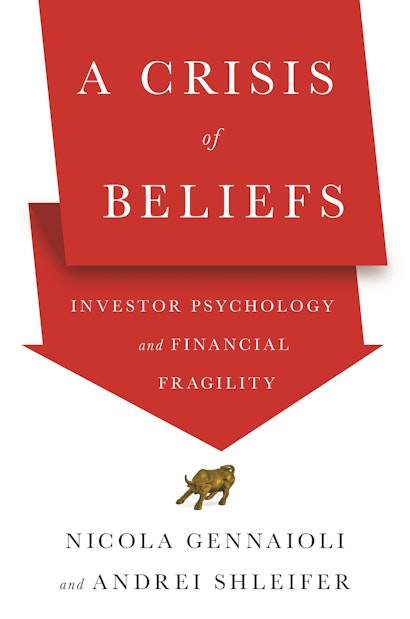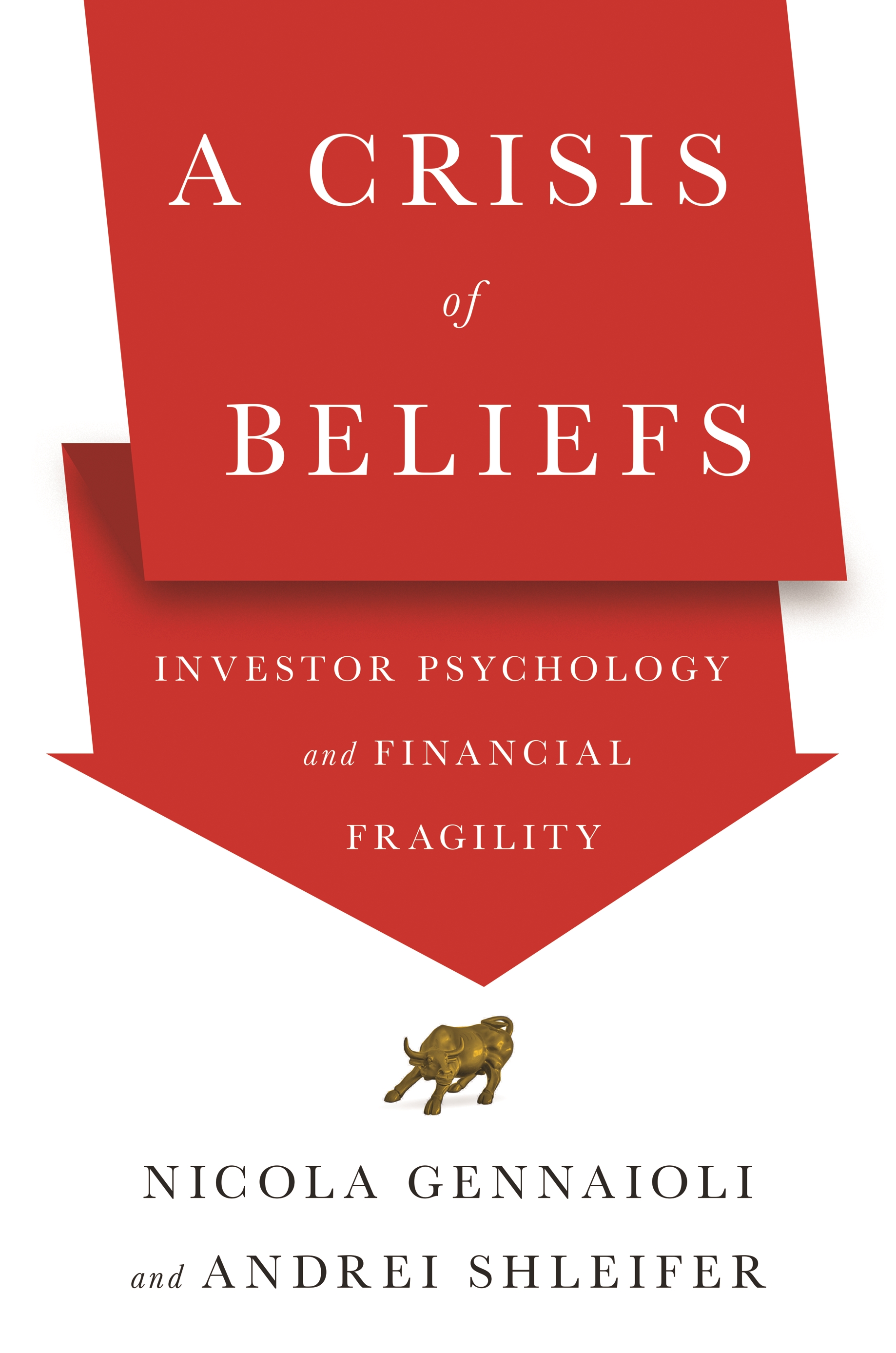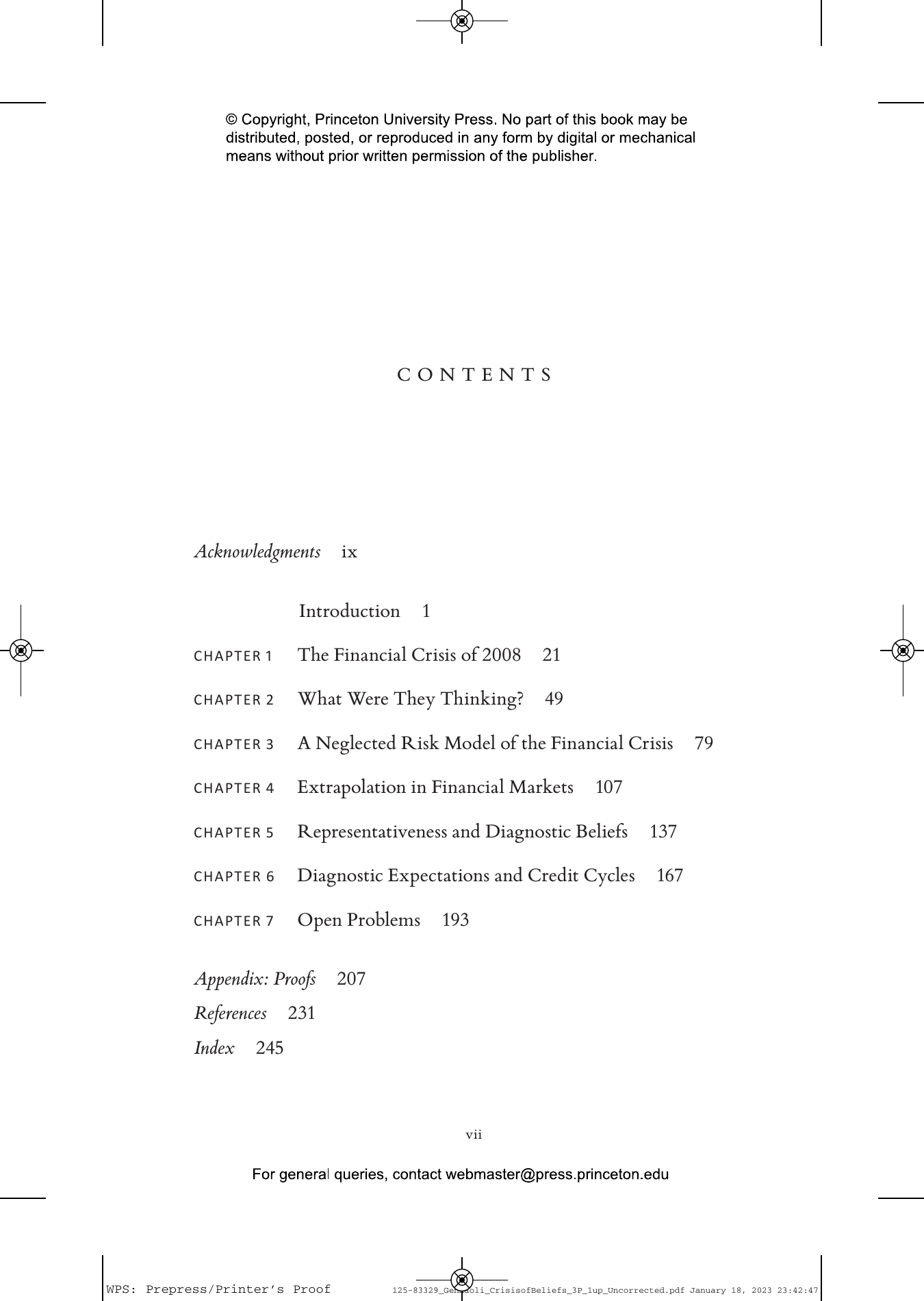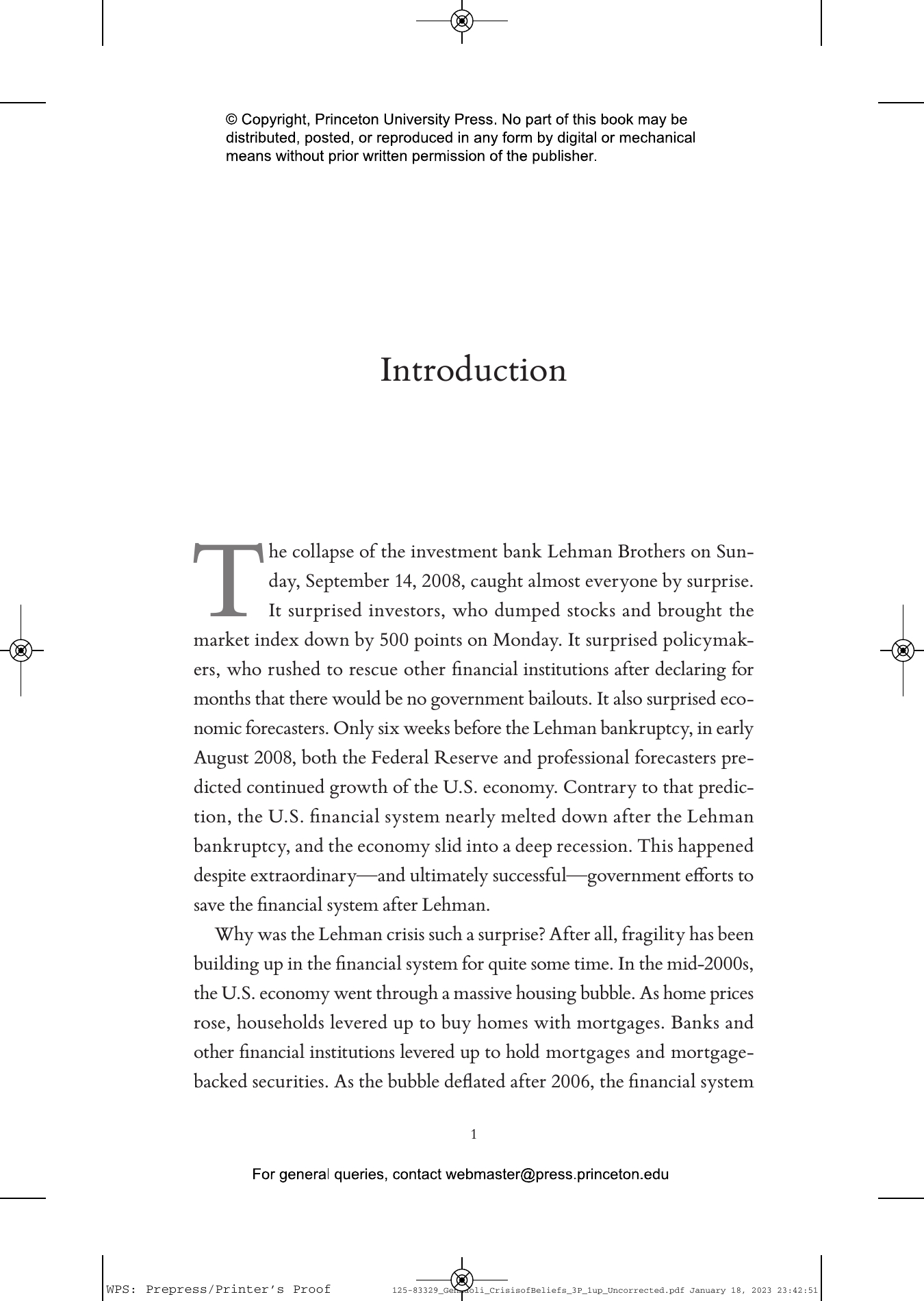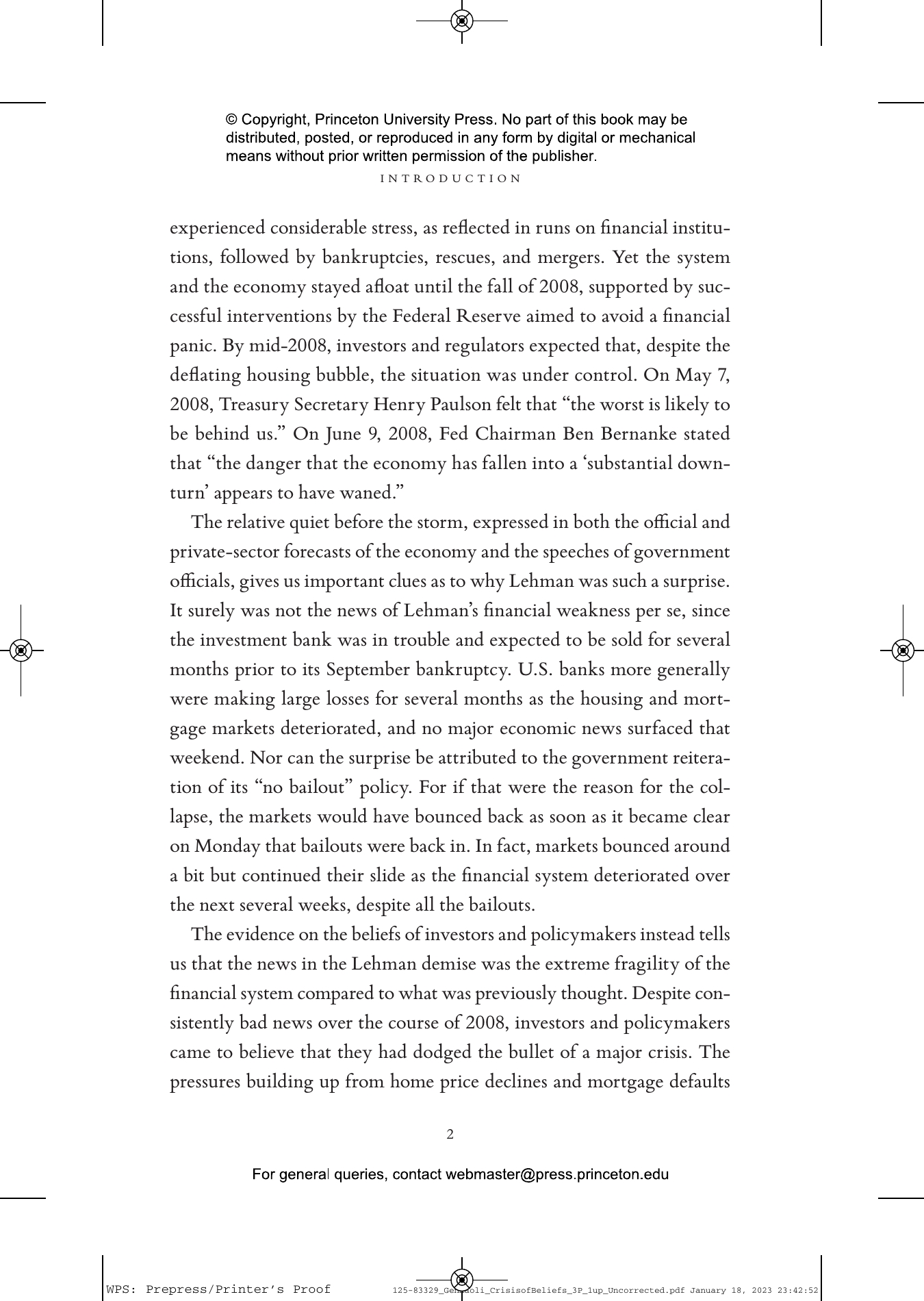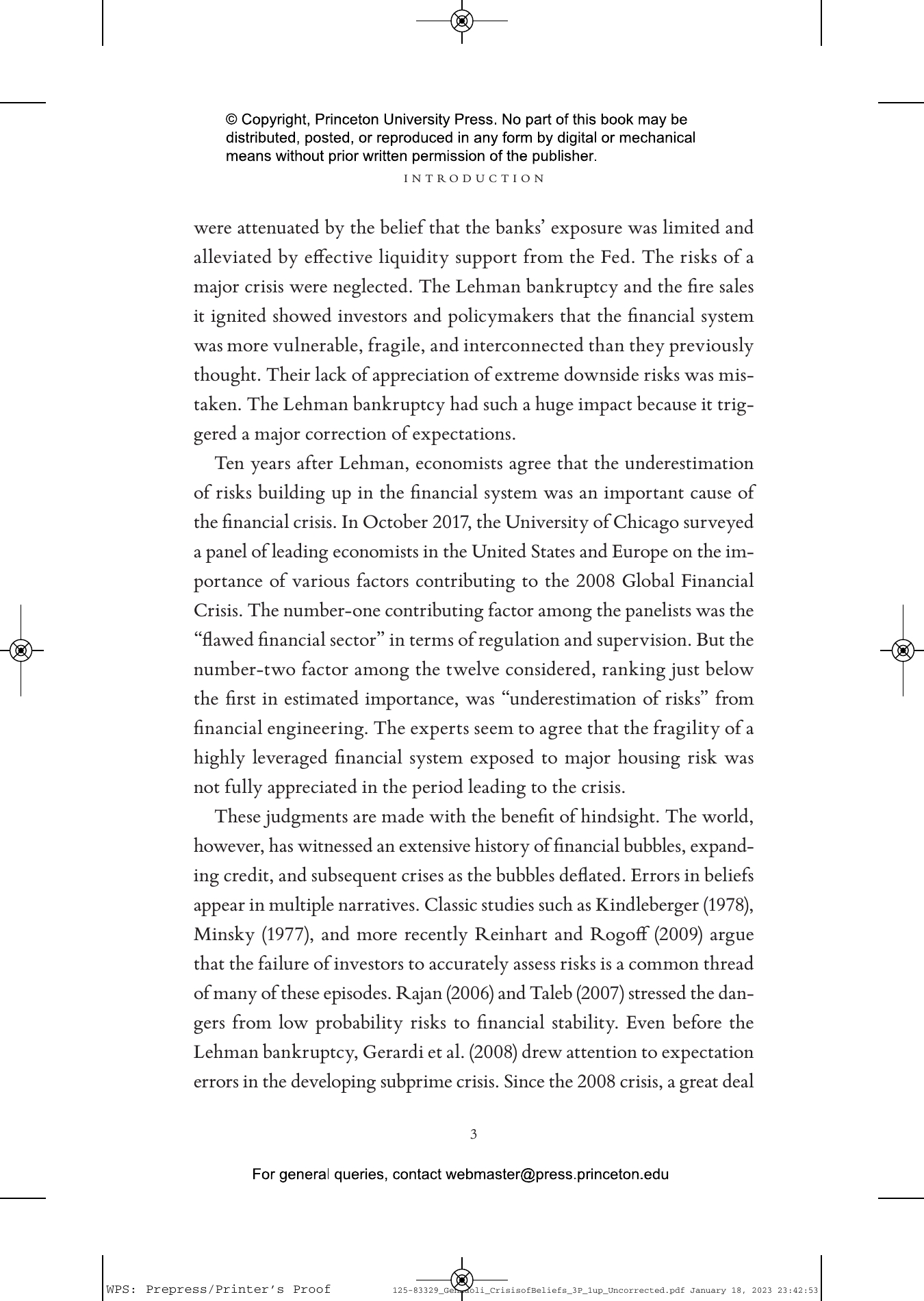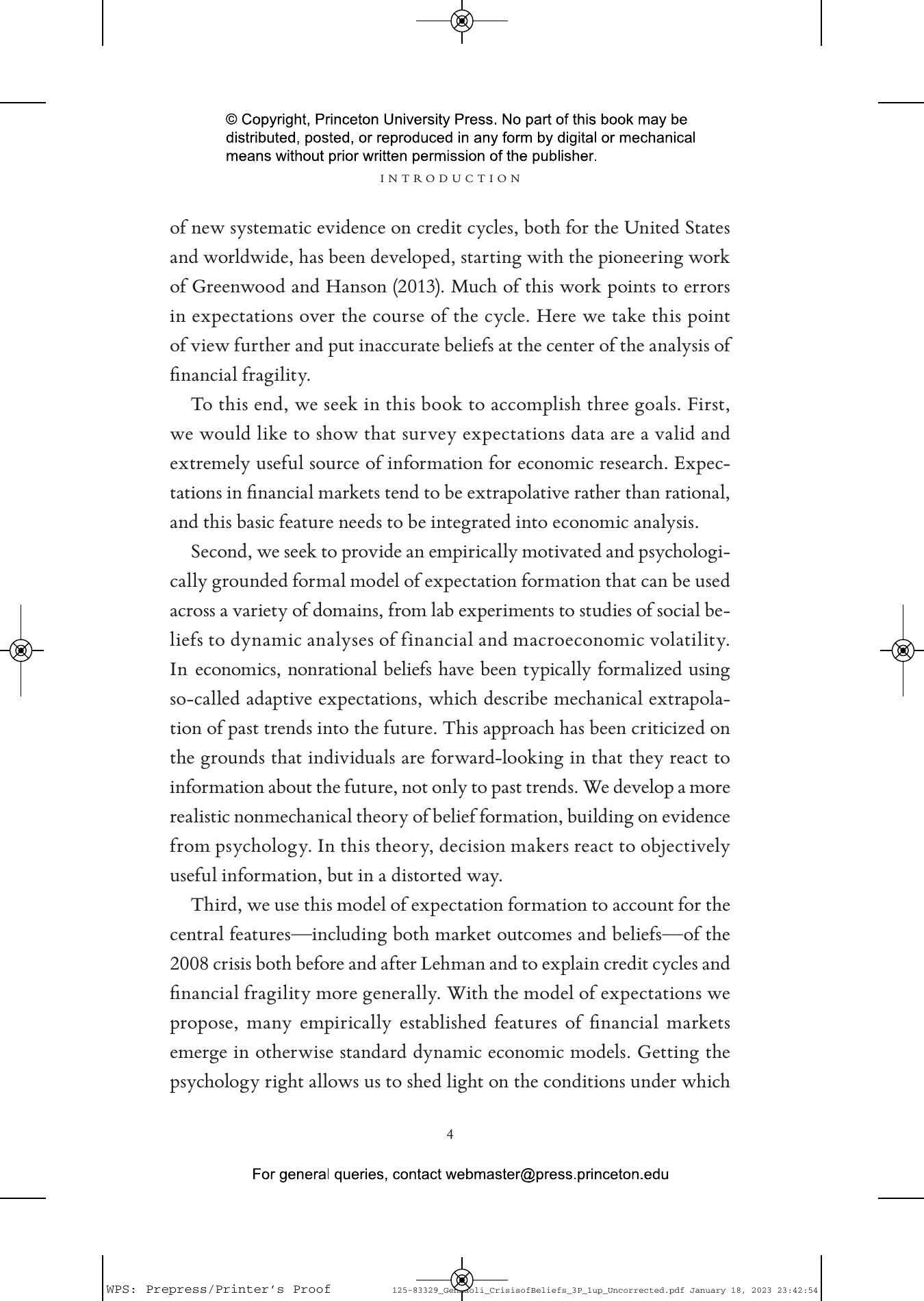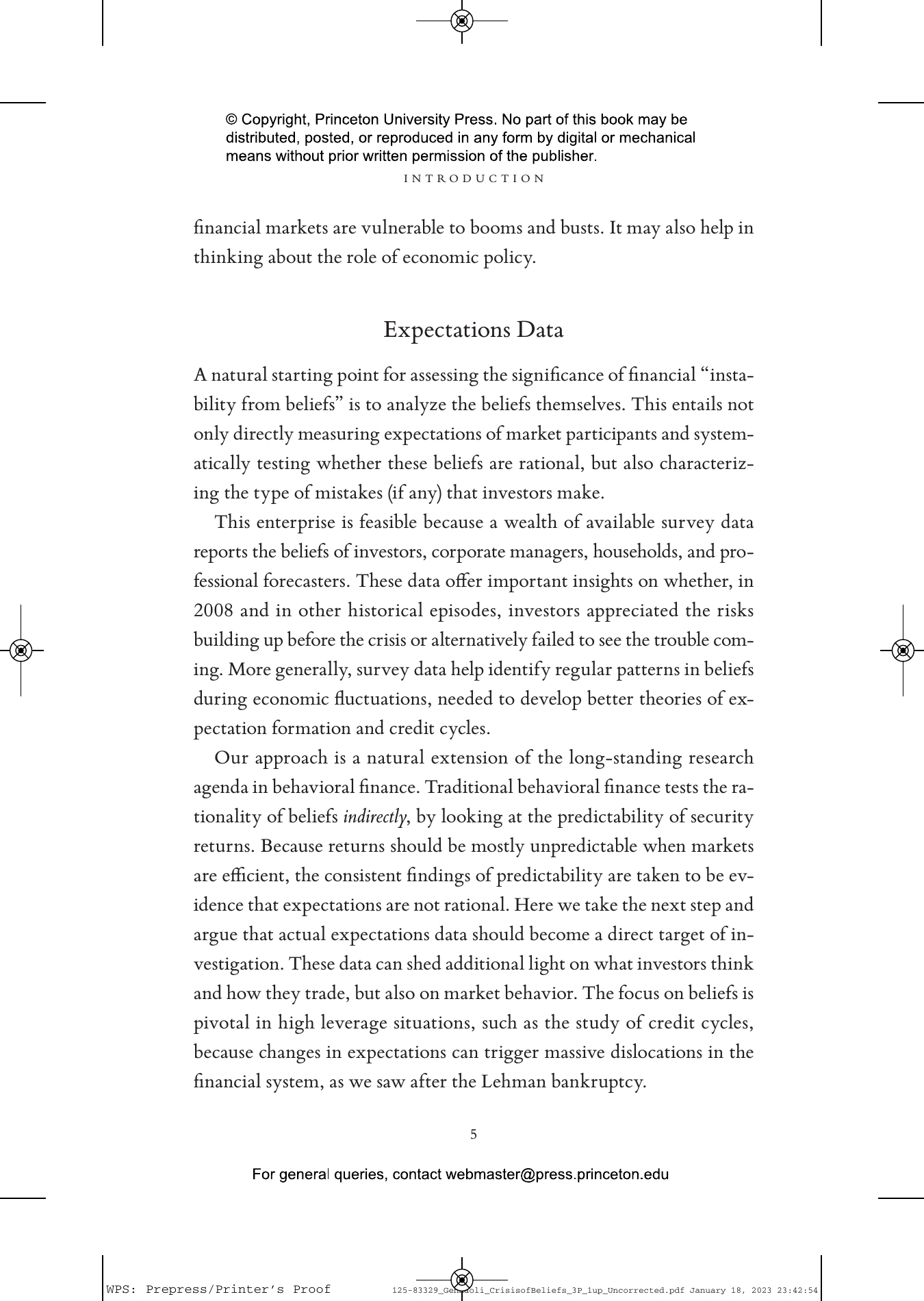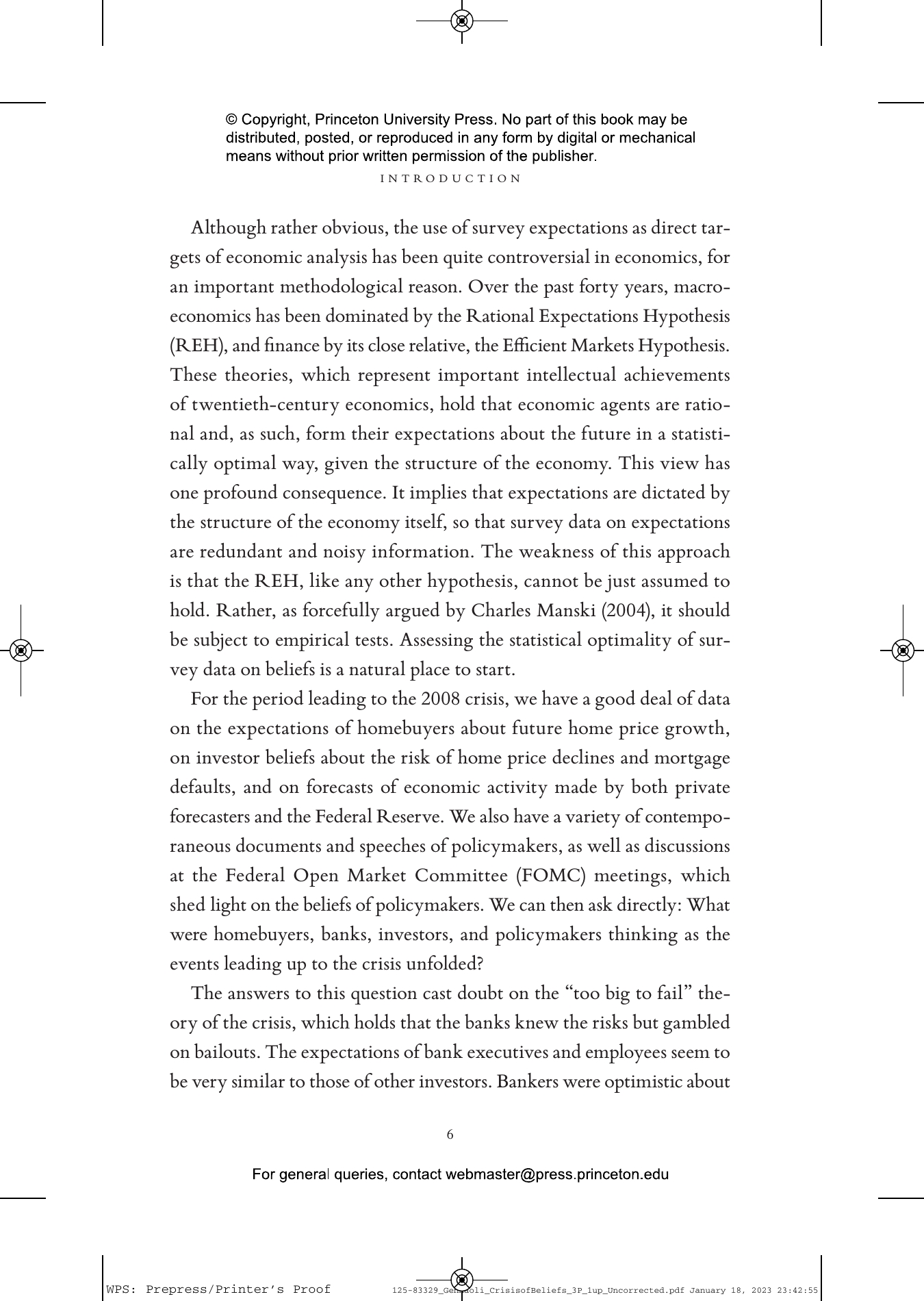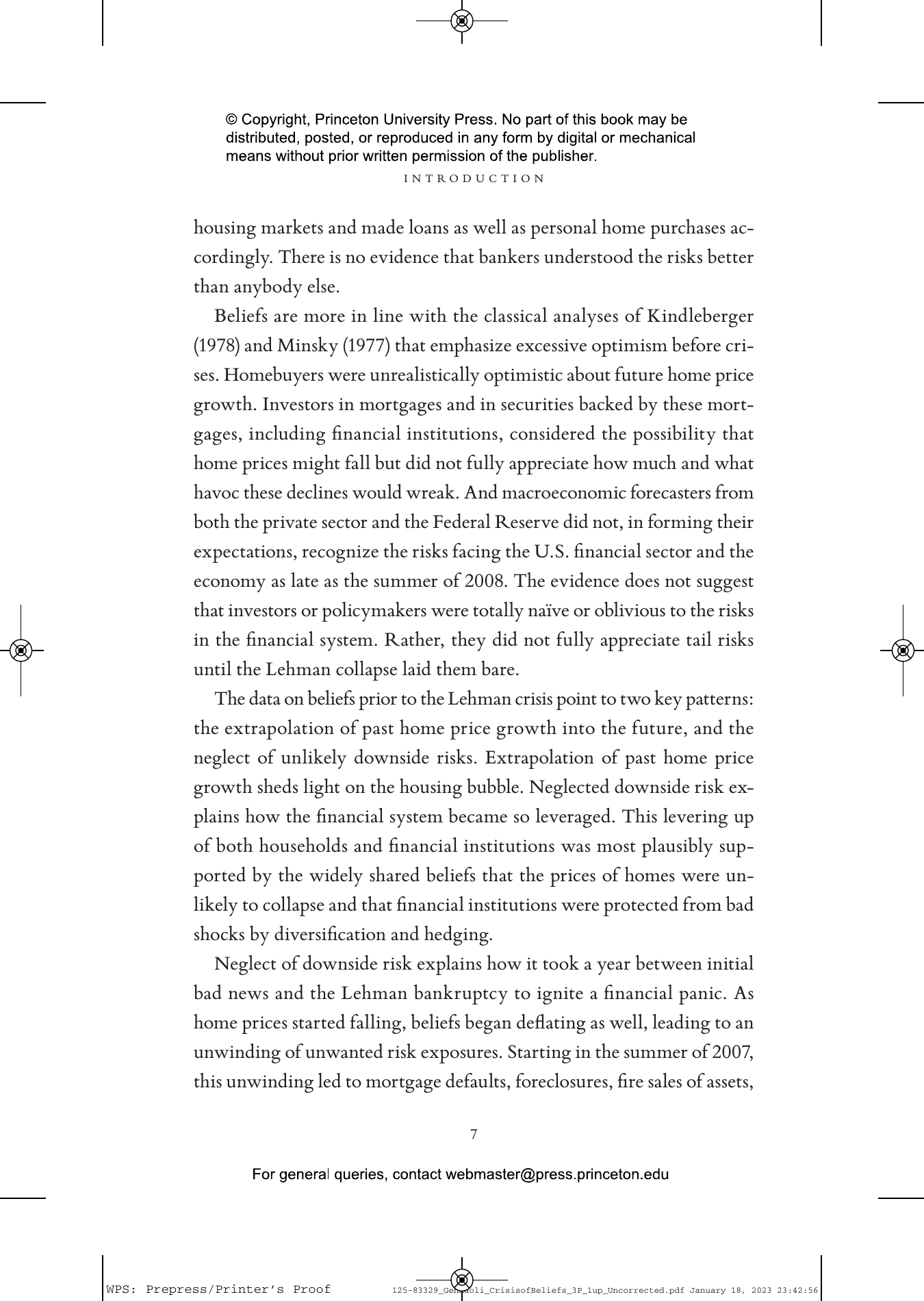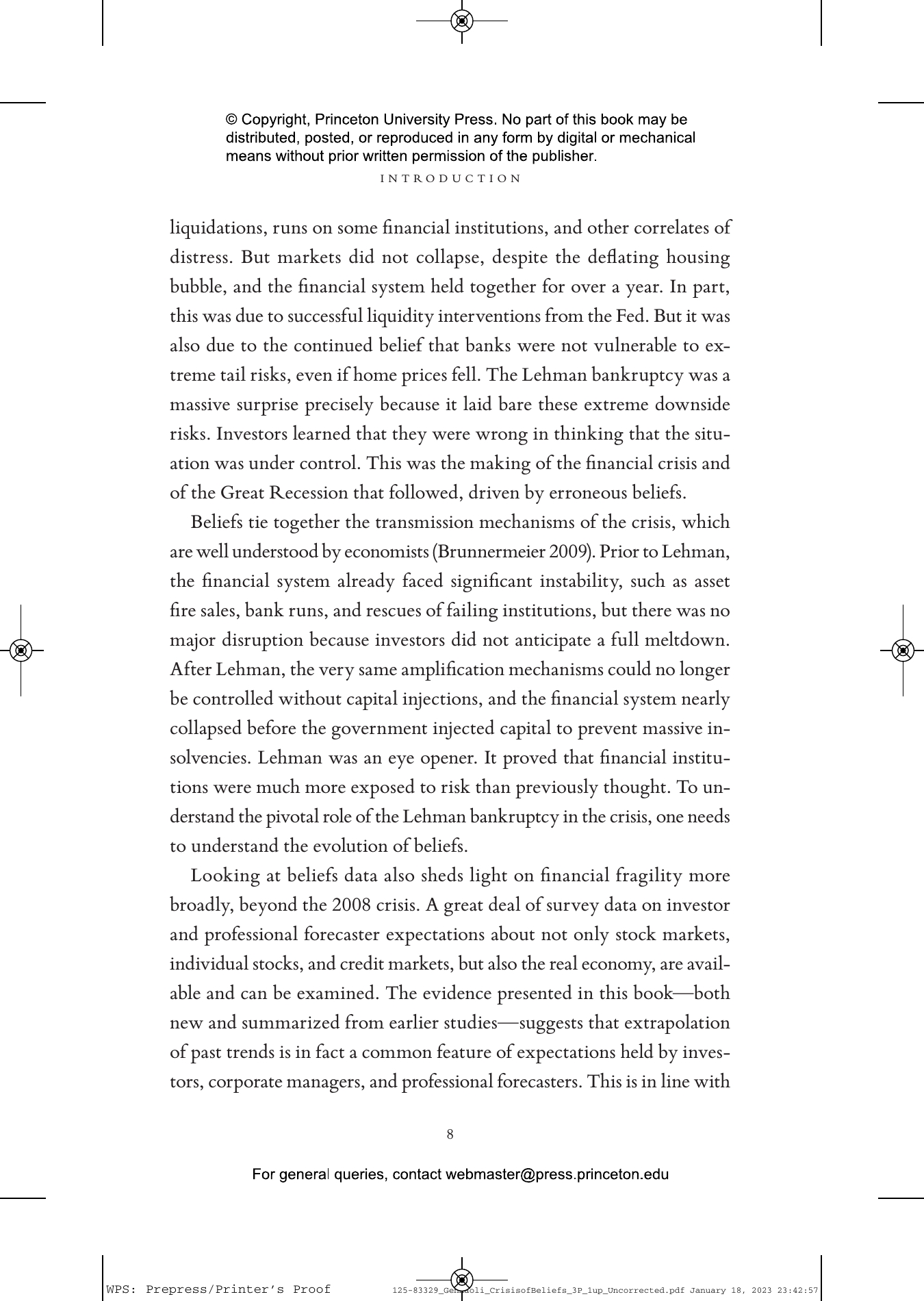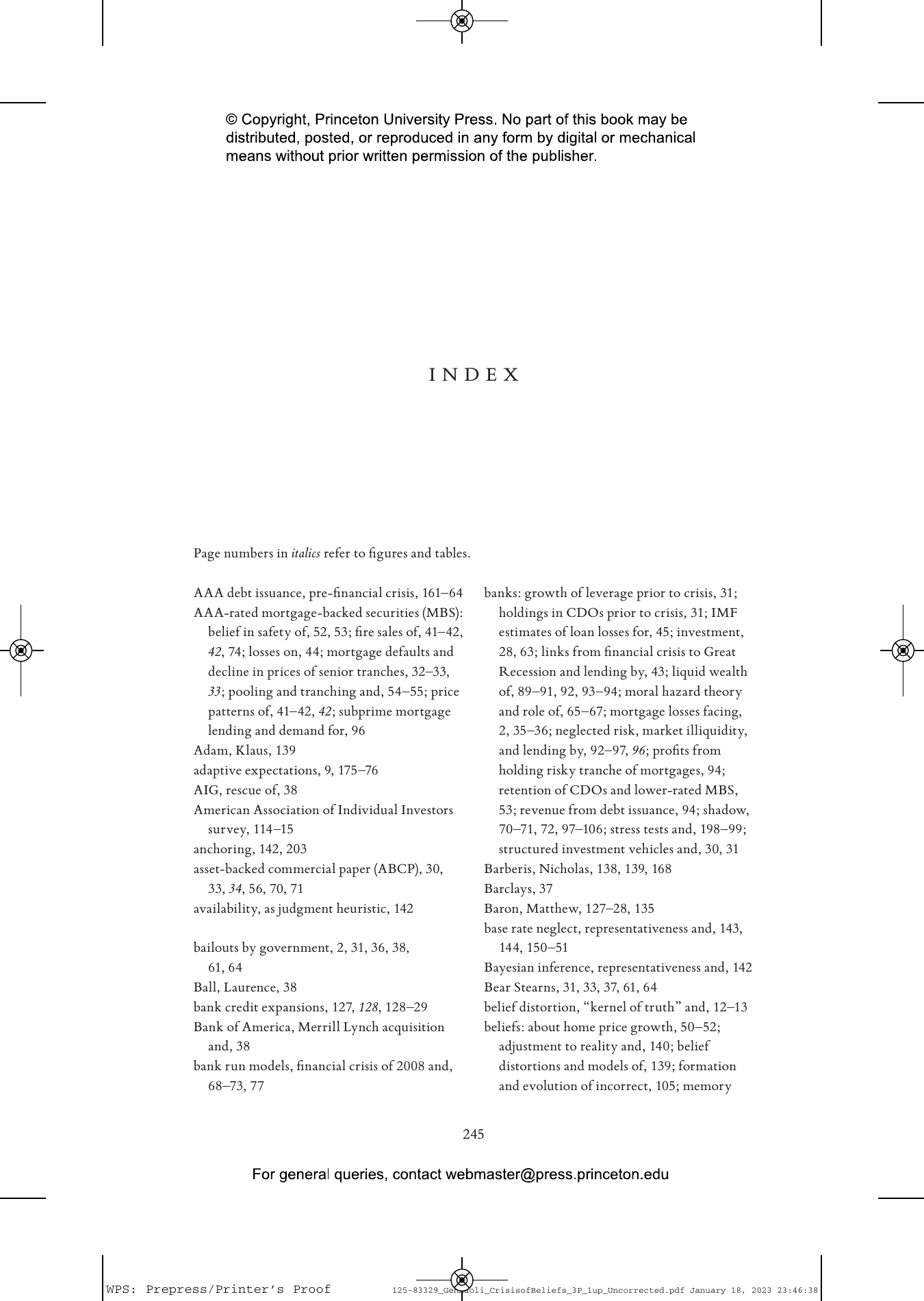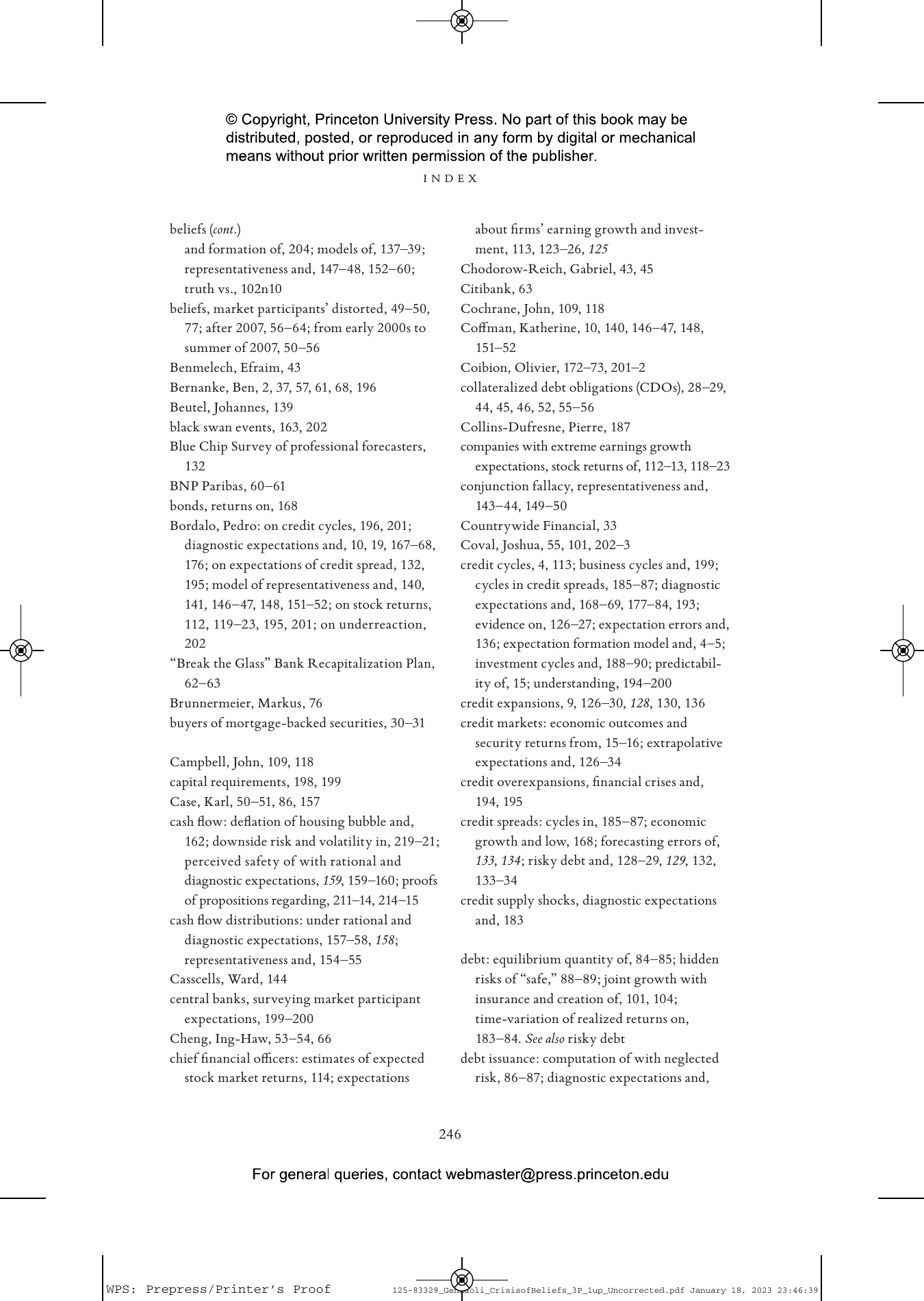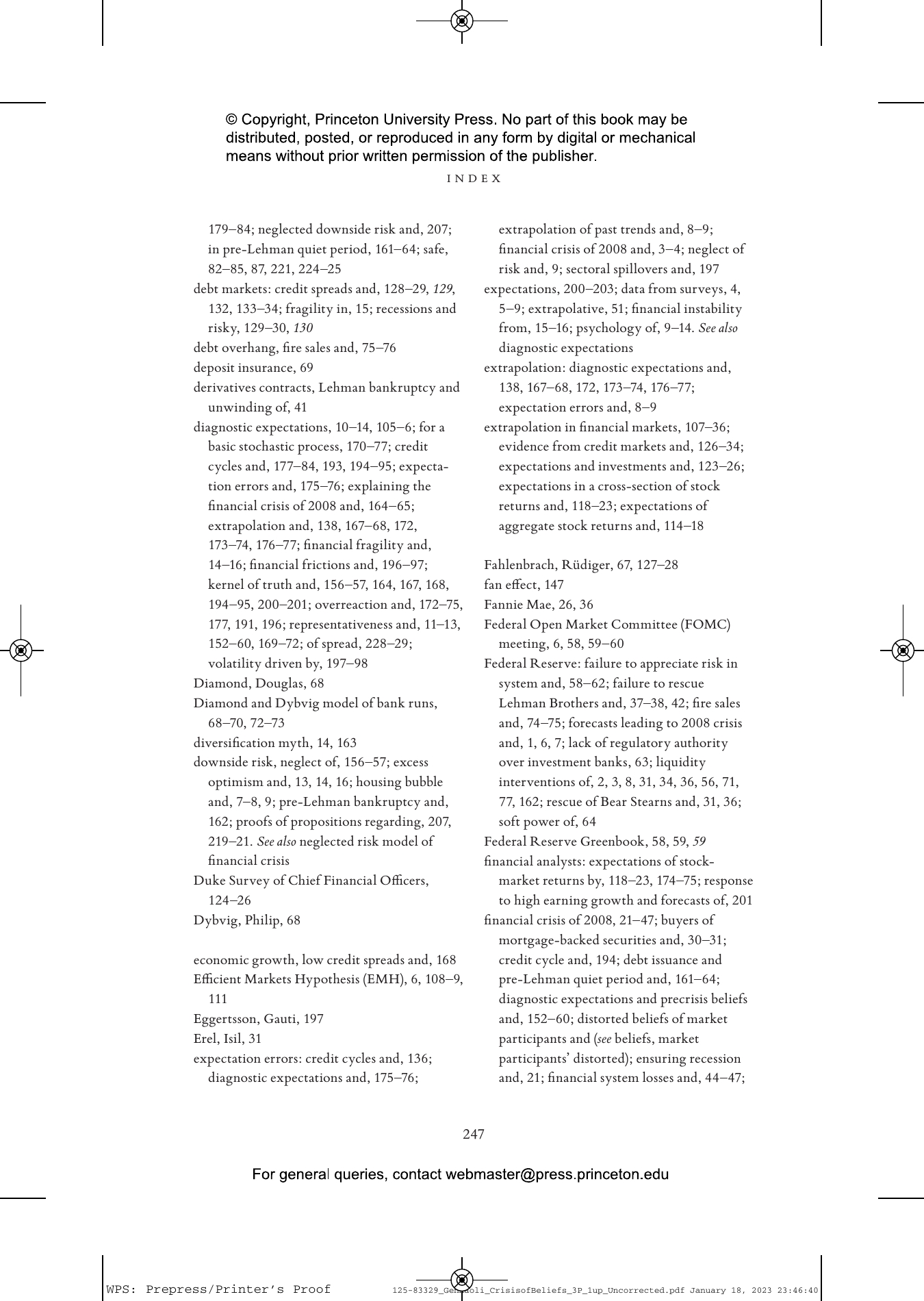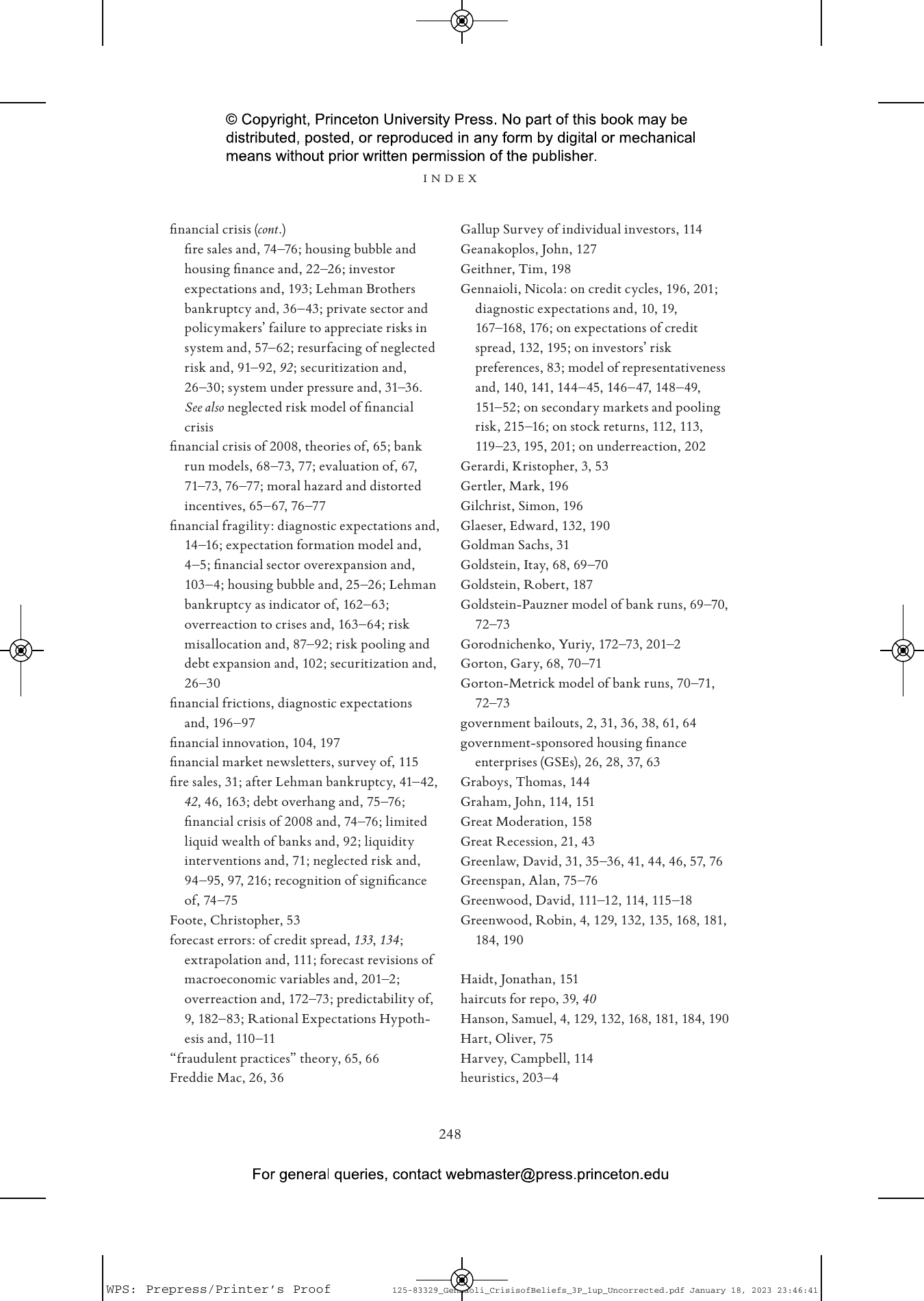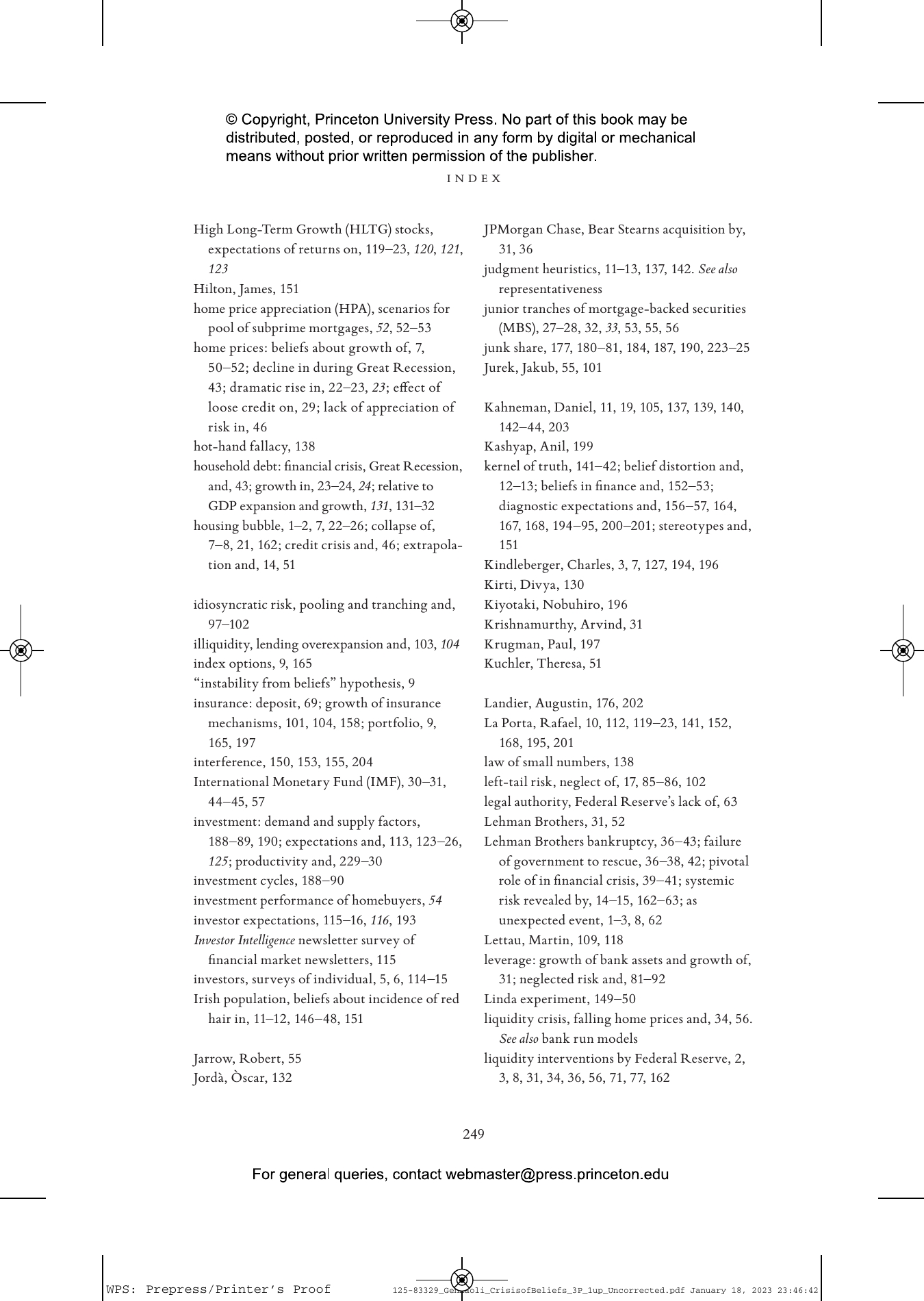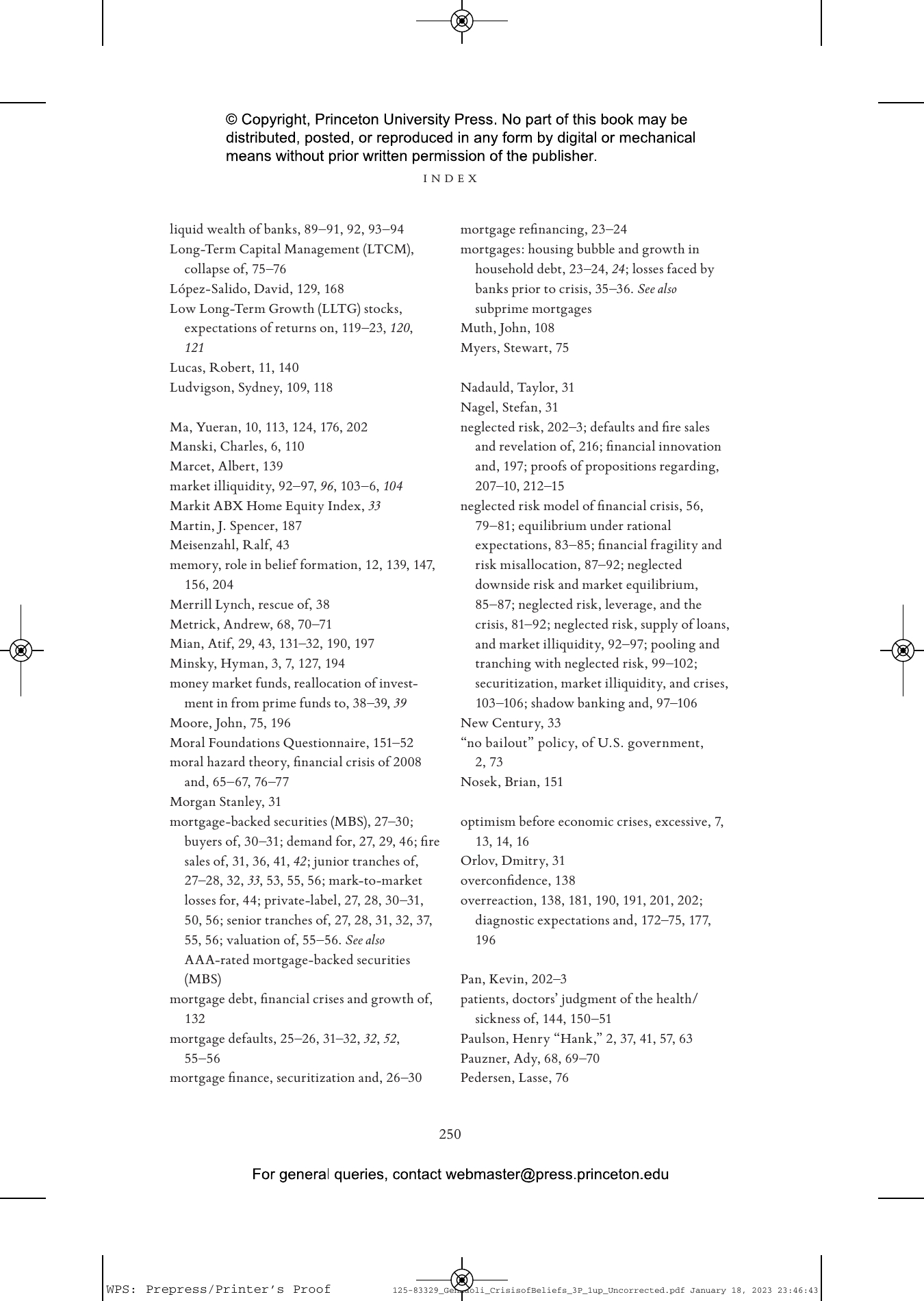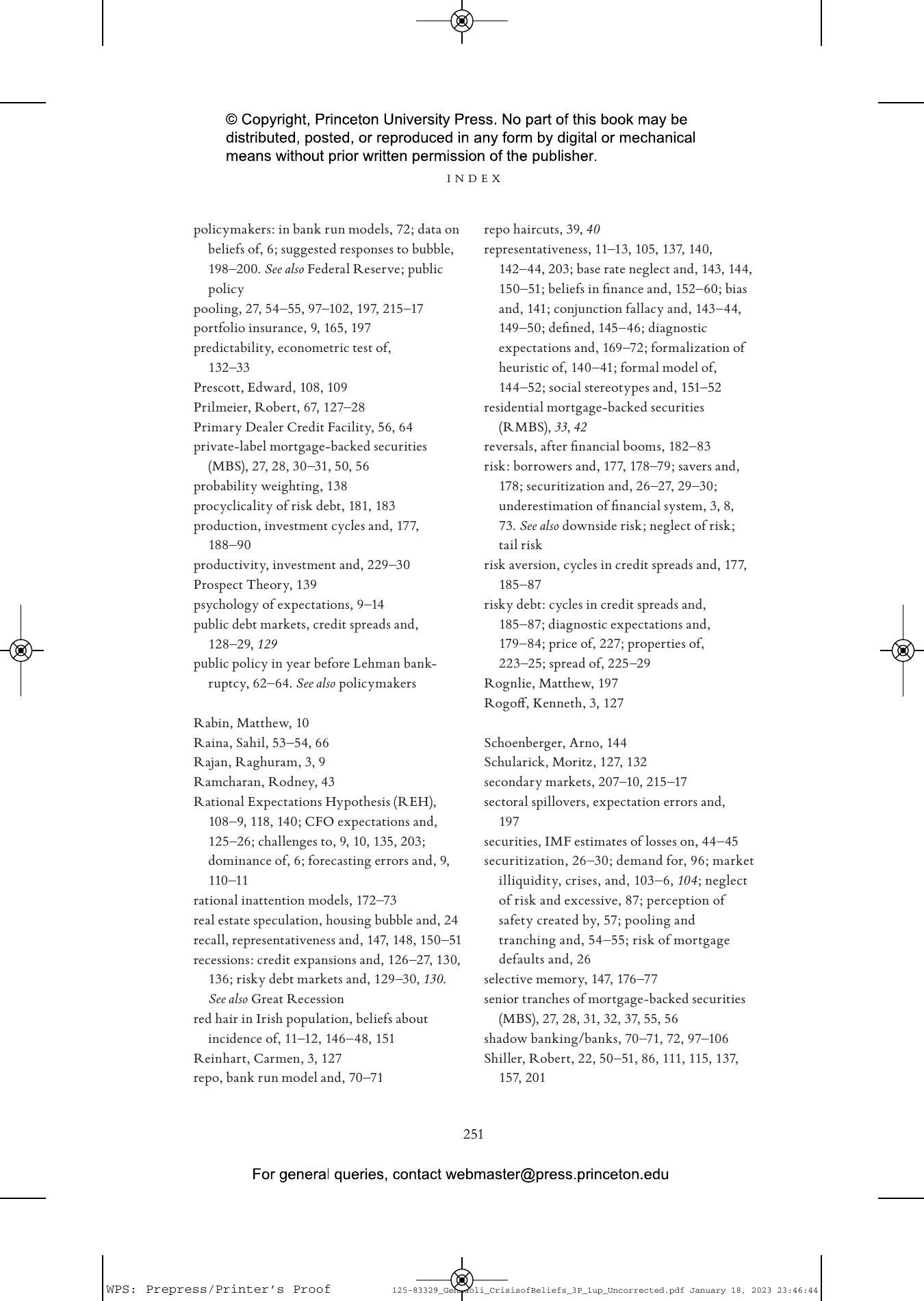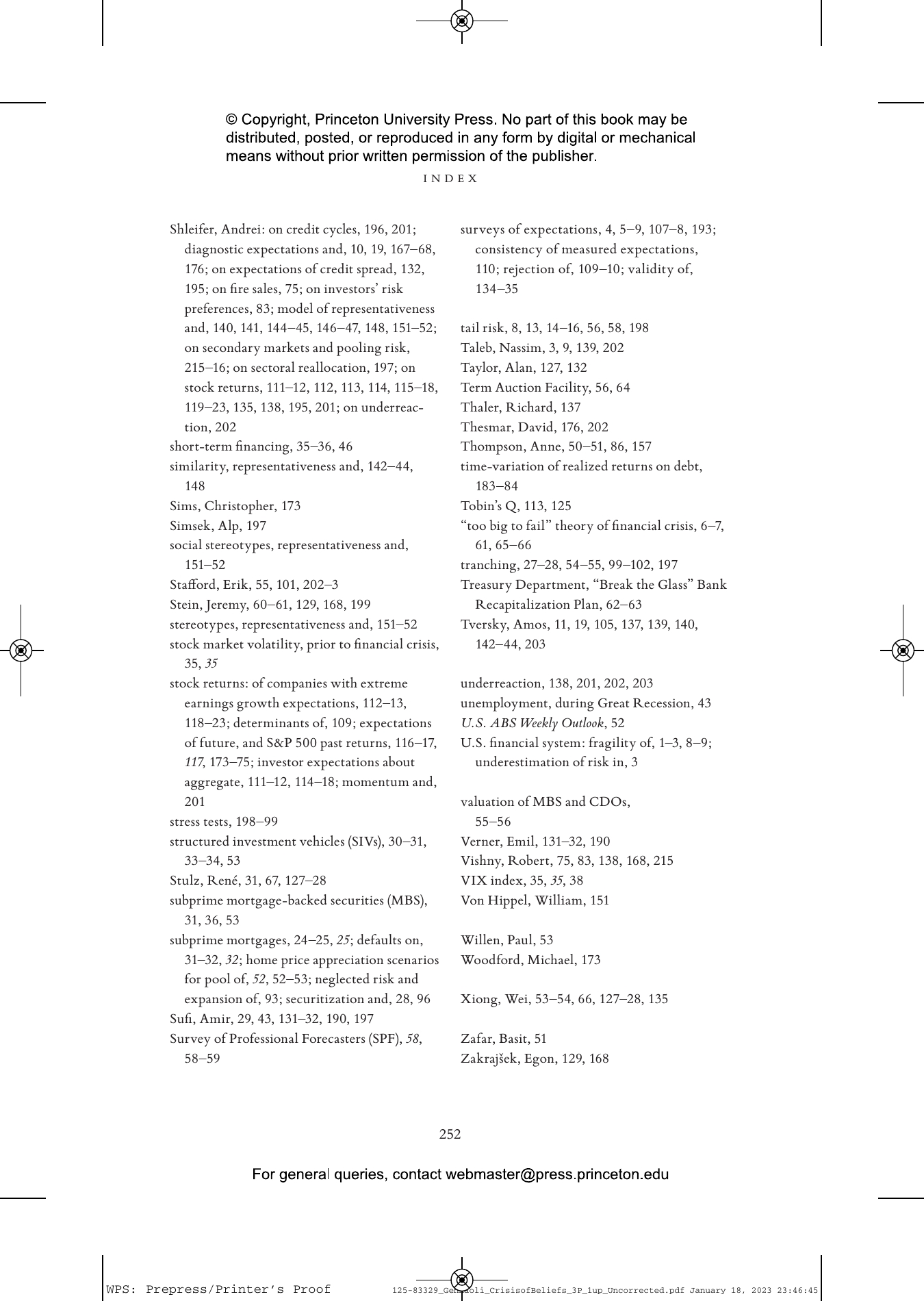The collapse of Lehman Brothers in September 2008 caught markets and regulators by surprise. Although the government rushed to rescue other financial institutions from a similar fate after Lehman, it could not prevent the deepest recession in postwar history. A Crisis of Beliefs makes us rethink the financial crisis and the nature of economic risk. In this authoritative and comprehensive book, two of today’s most insightful economists reveal how our beliefs shape financial markets, lead to expansions of credit and leverage, and expose the economy to major risks.
Nicola Gennaioli and Andrei Shleifer carefully walk readers through the unraveling of Lehman Brothers and the ensuing meltdown of the US financial system, and then present new evidence to illustrate the destabilizing role played by the beliefs of home buyers, investors, and regulators. Using the latest research in psychology and behavioral economics, they present a new theory of belief formation that explains why the financial crisis came as such a shock to so many people—and how financial and economic instability persist.
A must-read for anyone seeking insights into financial markets, A Crisis of Beliefs shows how even the smartest market participants and regulators did not fully appreciate the extent of economic risk, and offers a new framework for understanding today’s unpredictable financial waters.
Awards and Recognition
- One of Bloomberg's Best Books of 2018 (Cass Sunstein)
- One of Barron's Book Picks from Industry Leaders in 2018 (Robert Shiller)
"There is evidence from behavioral economics that people are not entirely logical, and do not actually rely fully on logic or standard statistical techniques. This behavioral economic perspective is embraced by Nicola Gennaioli of Bocconi University and Andrei Shleifer of Harvard University in their remarkable new book, A Crisis of Beliefs."—Robert J. Shiller, New York Times
"Economists are at last catching up with the seminal work of the late Hyman Minsky. In a book written for academics, but of wider relevance, the authors conclude that, first, investors make mistakes; second, those mistakes are systematic, predictable and incompatible with the view, that expectations are 'rational'; and, third, a new perspective, called 'diagnostic expectations', rooted in human psychology, does a good job of explaining these mistakes. Moreover, they argue, surveys indicate when expectations are becoming riskily euphoric and so should help predict crises."—Martin Wolf, Financial Times
"An ‘as smart as you would expect’ take on the hypothesis that investor over-extrapolation of recent price trends can cause financial crises, including our recent financial crisis."—Tyler Cowen, Marginal Revolution
"Something is wrong with the economics profession if events like those of 2008 do not change its thinking. Those wanting to be in the vanguard of the new thinking should be reading A Crisis of Beliefs."—Lawrence Summers, WashingtonPost.com's Wonkblog
"A decade after the financial crisis of 2008 and its aftermath, economists are still grappling with its nature and significance. An important recent contribution is A Crisis of Beliefs. . . . They make a convincing case for taking seriously the evidence provided by surveys and anecdotes that characterize the beliefs held at the time by households, investors, and policy makers."—Arnold Kling, EconLib
"For a decade now, people have been looking for a silver lining to the disasters of 2008-2018, hoping that this period will bring about a more productive integration of finance, behavioral economics, and macroeconomic orthodoxy. So far, they have been searching in vain. But with the publication of A Crisis of Beliefs, there is hope yet."—J. Bradford Delong, Project Syndicate
"What caused the financial crisis of 2008? What’s likely to cause future crises? Gennaioli and Shleifer offer an original, compelling and intriguing answer: investor psychology. . . . Gennaioli and Shleifer offer a parsimonious account of boom-bust cycles — one that relies mostly on what goes on in people’s minds."—Cass Sunstein, Bloomberg
"A rich, elaborate and ambitious book."—Simone Raudino, The European Legacy
“A Crisis of Beliefs offers a brilliant new analysis of the root cause of financial meltdowns and credit cycles more generally: market participants’ mistaken beliefs. Gennaioli and Shleifer show how survey evidence that ferrets out expectational errors can provide early warning signals of impending market corrections and a powerful new tool to prevent future financial crises. This book leads the way beyond rational expectations.”—Janet Yellen, Distinguished Fellow in Residence, Brookings Institution, and former Chair of the Federal Reserve, 2014–2018
“This brilliant book builds on a psychological idea to offer both an alternative to rational expectations and an interpretation of the financial crisis. It will be a milestone in the history of behavioral economics.”—Daniel Kahneman, winner of the 2002 Nobel Prize in economics, author of Thinking, Fast and Slow
“Economists have long needed a theory of why we are so often caught totally off guard by financial crises—here it is. This is a book that shakes our economic presumptions to the very core.”—Robert J. Shiller, winner of the 2013 Nobel Prize in economics, author of Irrational Exuberance
“The financial crisis brought home the inadequacy of analyses that assume people always correctly assess the risks they face. Gennaioli and Shleifer go further, offering a psychologically grounded theory of the kinds of errors that most typically occur, and explaining the consequences. This book is a tour de force, taking behavioral economics out of the lab and putting it to work in the real world.”—Michael Woodford, Columbia University, author of Interest and Prices
“This fantastic book puts forth an empirically motivated, rigorously modeled, and psychologically grounded theory of behavioral biases in expectations formation. Written by two of today’s leading economists, A Crisis of Beliefs will be on the shelves of policymakers around the world.”—Amir Sufi, coauthor of House of Debt
